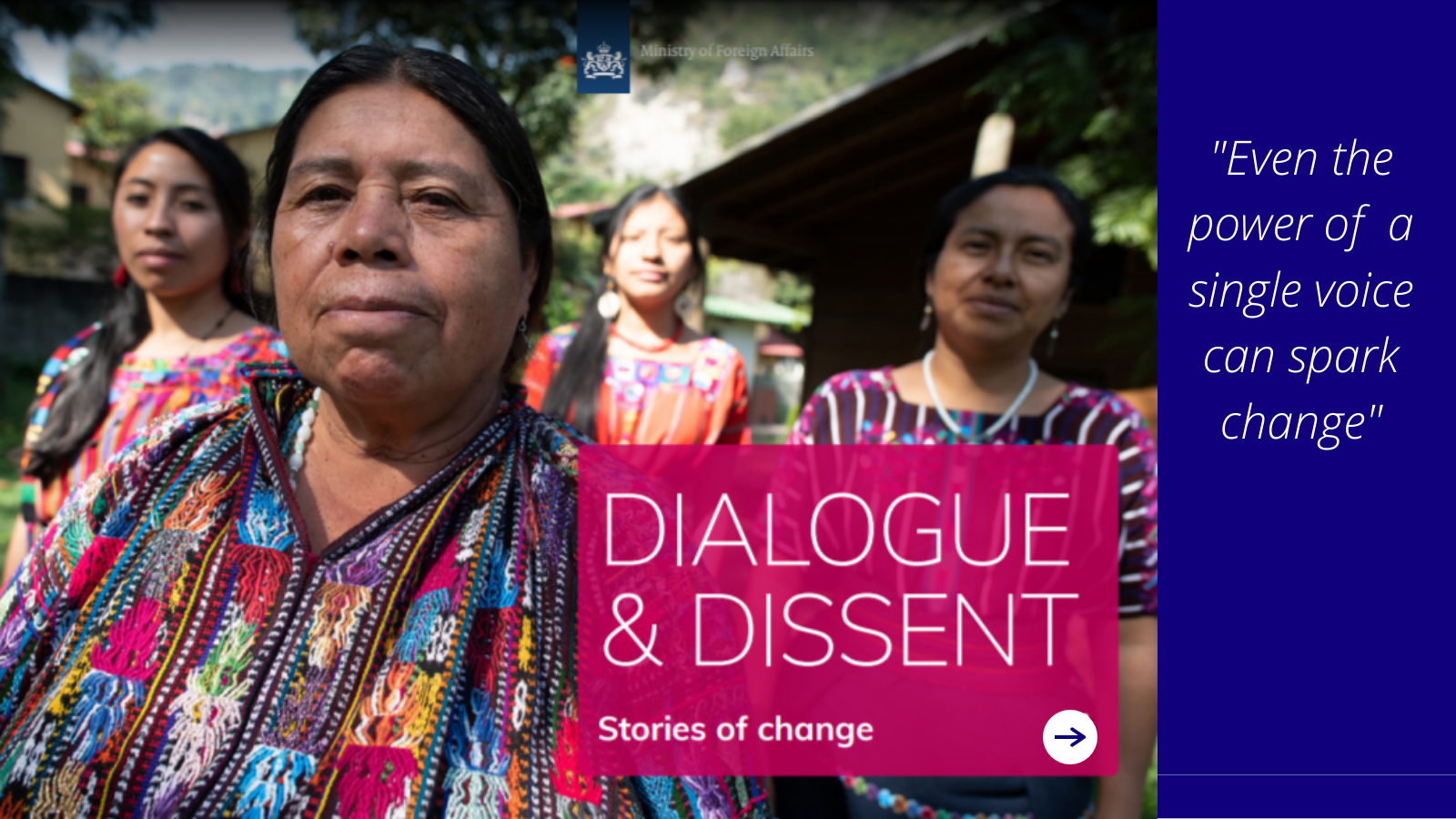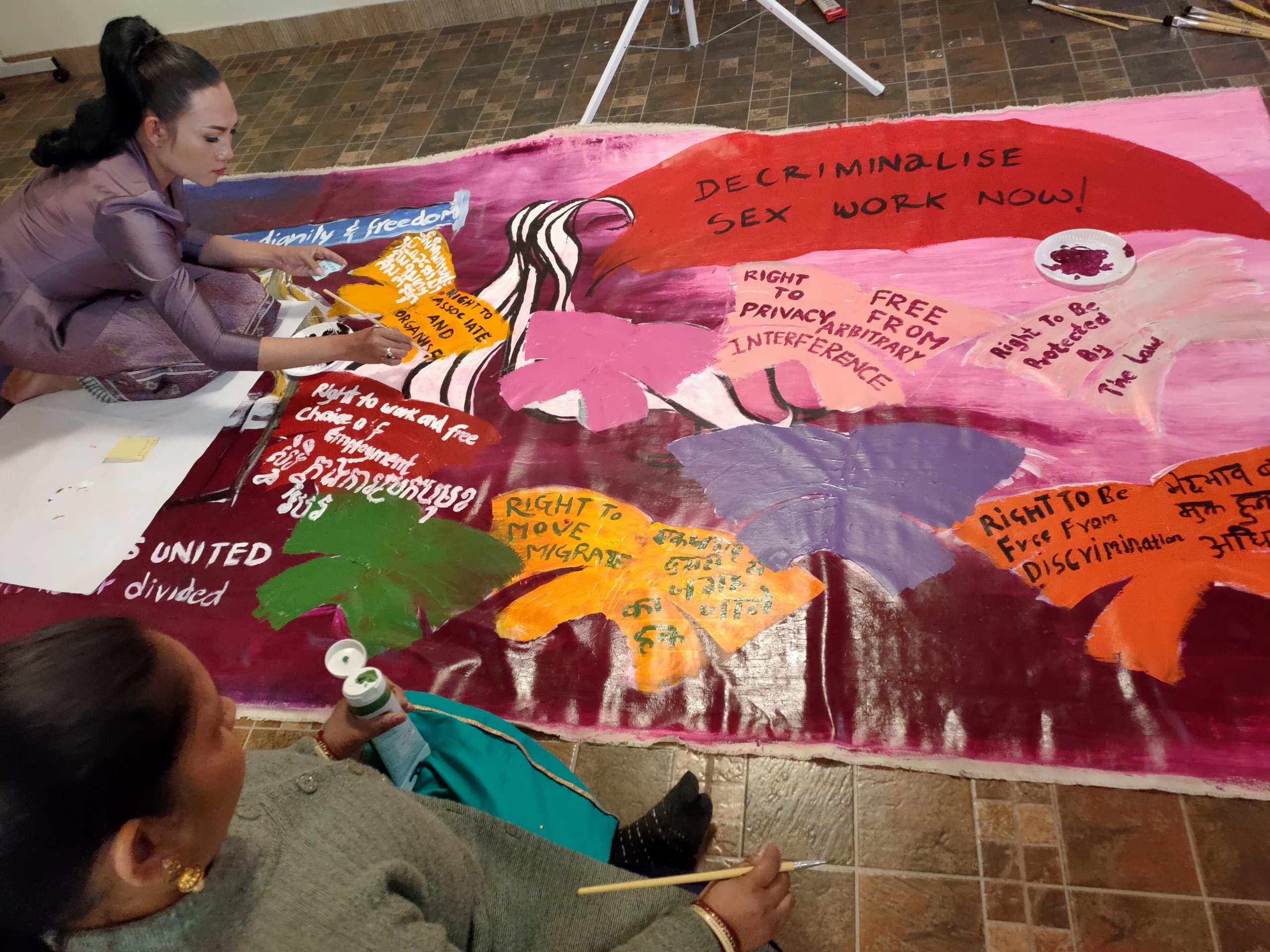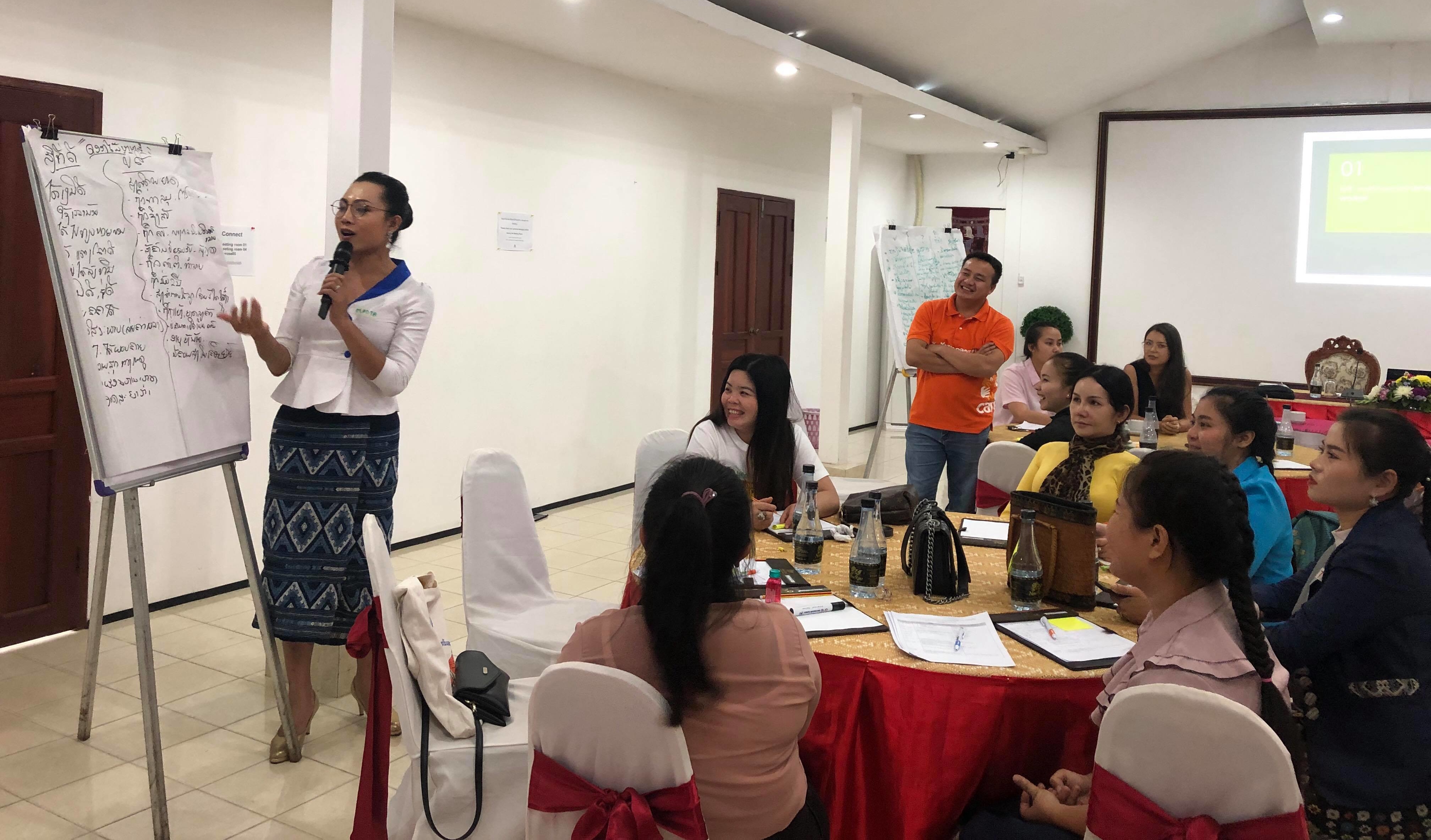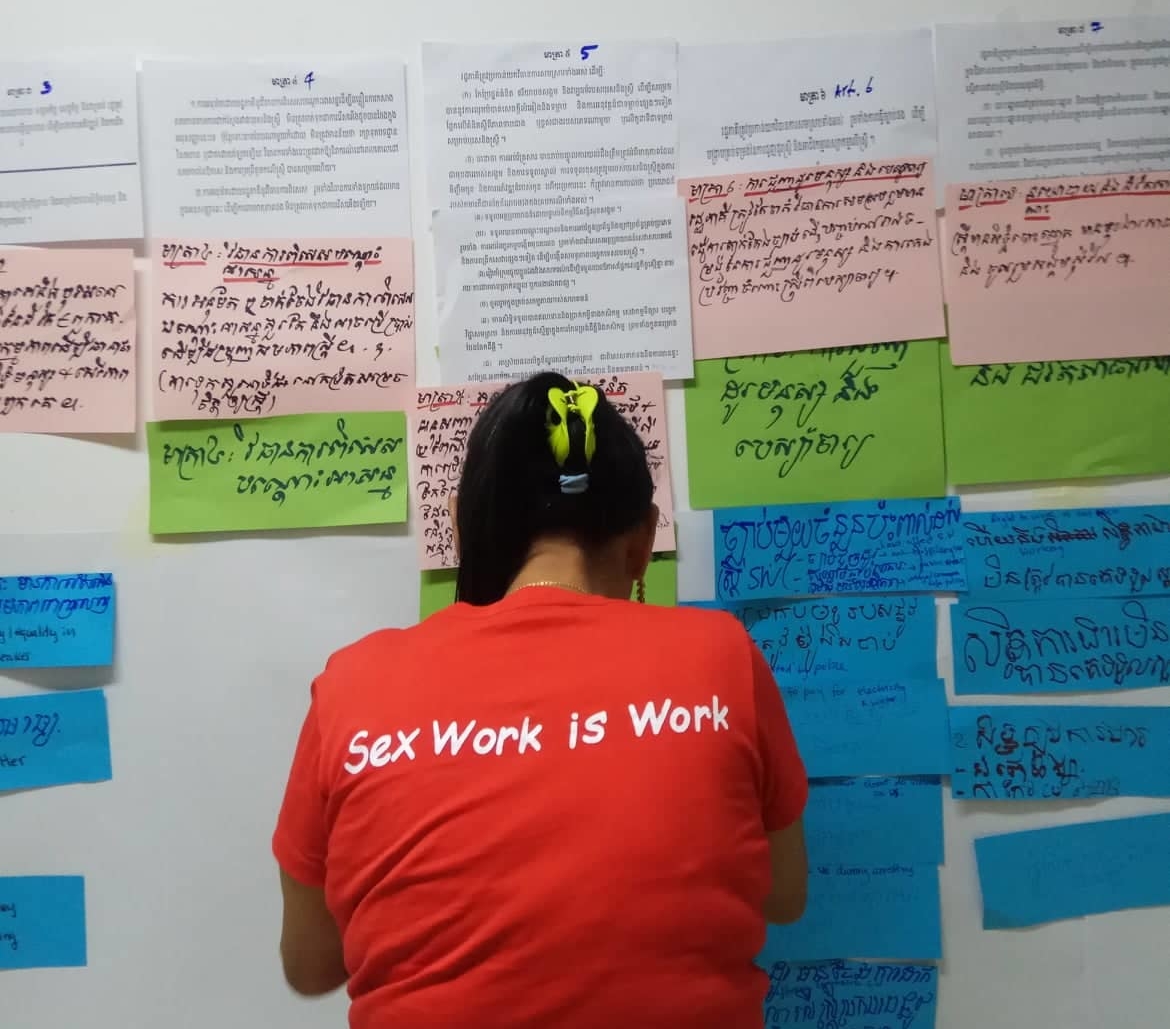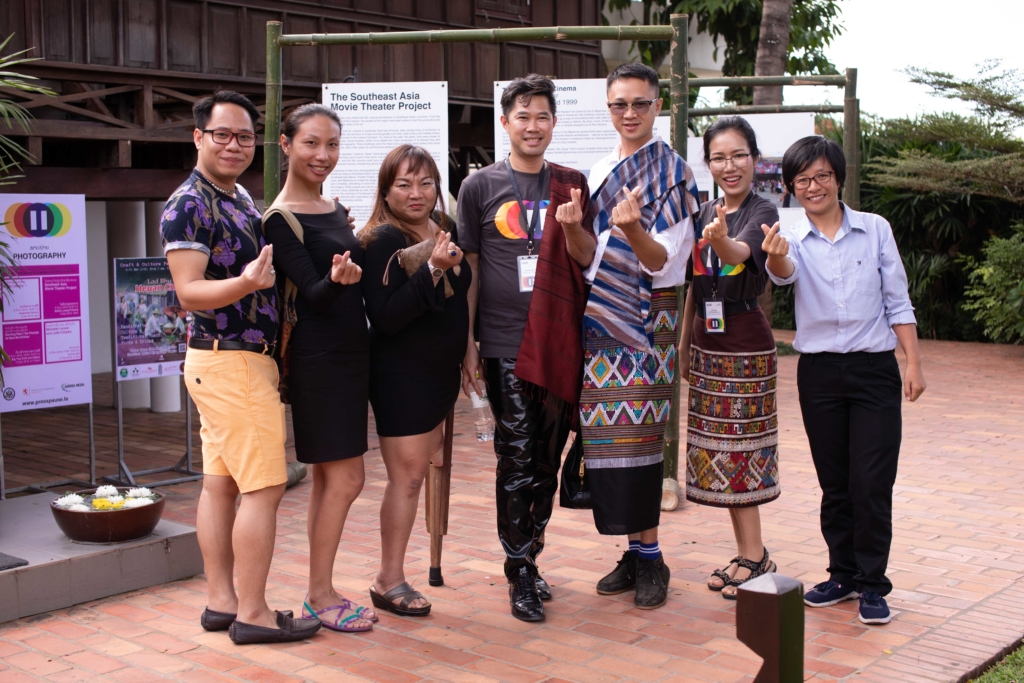The voices of sex workers also count!
Voice recently talked with KayThi, the Regional Coordinator, Asia Pacific Network of Sex Workers, a global influencing grantee. Below are the highlights:
The sex workers movement informs the core of what Voice as a grant facility sets out to do. In our mission to leave no one behind, Voice aims to support a group that is excluded from all walks of life, like the ever strengthening network of sex worker’s organisations. In the Asia region, the Asia Pacific Network of Sex Workers (APNSW) is one of Voice’s global influencing grantees to advocate for the voices of sex workers to be included in national and global processes such as the Convention on the Elimination of All Forms of Discrimination against Women (CEDAW).We catch up with KayThi for a conversation on the same.
Voice: Why and how was APNSW formed?
KayThi: APNSW was established by sex workers in 1994 at the International AIDS Conference held in Yokohama, Japan. APNSW was formed to identify and create opportunities for sex workers, critically assessing new research and policies and engaging in advocacy with relevant decision makers to improve the lives of sex workers in Asia and the Pacific. To find out more about us click here
Voice: Why did you join APNSW? What is your motivation?
KayThi: I had been elected as the chairperson of the APNSW in 2010. I gladly accepted the role and I volunteered as the chairperson until April 2012. After then, I joined as a project officer till 2013. Unfortunately, the programme director (Andrew Hunter) of APNSW passed away. The advisory group and board members decided to appoint me as the Regional Co-ordinator in January 2014.
Honestly, I was kind of nervous when they appointed me as the Regional Co-ordinator! At a regional level, I didn’t have enough experience in management. However, APNSW advisory and community leaders from across Asia and Pacific had trusted me with this role so I was eager not to let them down. This has been my motivation in addition to the love I have for the sex workers community. I do my best for APNSW and the sex workers community. This is my personal commitment.
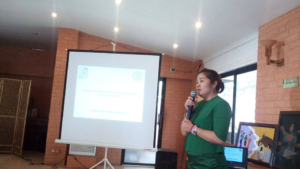
Photo credit: Dale Kongmont
Voice: What are the main challenges that sex workers in the region (Asia Pacific) are facing?
KayThi: In the Asia Pacific region, a majority of countries have criminalised sex work except for very few countries like New Zealand. The work of sex workers has never been recognised. Criminalisation laws make it harder for sex workers to access health services, justice and safe working conditions. They also expose the community to violence. Police use carrying condoms as evidence of arrest for sex workers. Criminalisation also makes it difficult for sex workers to report the human rights violations especially by police and health care providers which permit further stigmatisation. Sex workers also face widespread violence and discrimination from society including their families which further endanger their health and safety.
If we can change laws and policies around criminalisation of sex work, the society will start accepting that sex work is work and some of these problems will be reduced including police arrests, violence and access to health services.
Voice: How are regional sex workers organisations (like APNSW) contributing to addressing the challenges mentioned above?
KayThi: APNSW is continuously advocating for laws and policies that are relevant to sex workers and sex worker rights. In the Asia Pacific region sex worker communities, organisations, and networks cannot talk about sex workers rights and issues in their own country. APNSW is responsible for advocating, in collaboration with member organisations, on the issues and rights of sex workers. APNSW wants a collective voice from national to regional sex workers groups to sustain the movement in the region. APNSW also provides technical support to member organisations such as organisational development and implementation, advocacy on laws, policies changes and movement building.
One recent example is where APNSW submitted the Lao PDR shadow report on sex workers and presented the oral statement, despite there being no sex worker representative from Laos and warning from women activists on the governments’ concerns.
Voice: What are the key (positive) changes that APNSW has brought to the sex workers movement in Asia?
KayThi: As a regional network, APNSW has a strong collaboration with the women’s movement. APNSW has responded effectively and promptly to violence faced by sex workers in countries in collaboration with national members.
APNSW has been able to strengthen and collaborate with national sex workers led organisations, networks and groups to advocate for laws and policies on sex worker’s rights.
APSNW has also been able to capacity build in-country partners to advocate on issues and contribute movement building in their country, including organisational development of sex worker, led organisations and networks. As a result, sex workers are gaining confidence and can advocate on their issues, needs and rights; managing their organizations and implementing programs. The sex workers organisations and communities have now been uniting and sharing information within and outside the region.
Voice: What would you say to allies and individuals who would like to support the sex workers movement?
KayThi: We welcome organisations and individuals who believe in our cause and want to support us. The issues and challenges of sex workers across the region and the world are the same. The sex work community needs support from allies and supporter organisations that are in solidarity with the movement. After all, we are all human.

